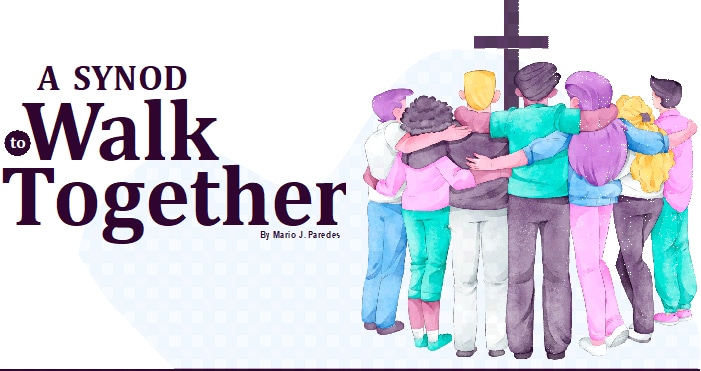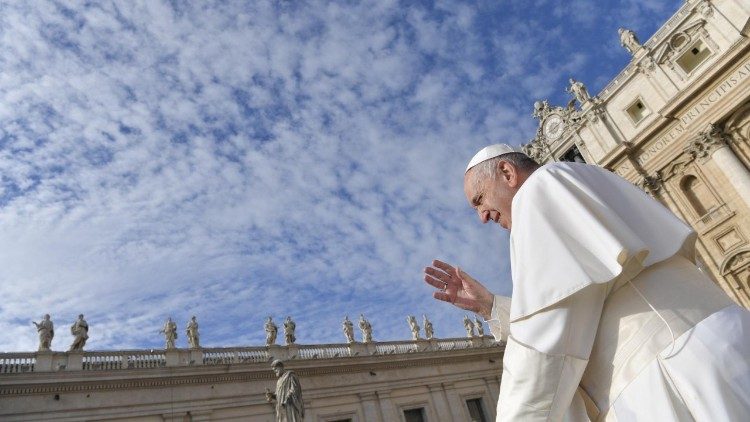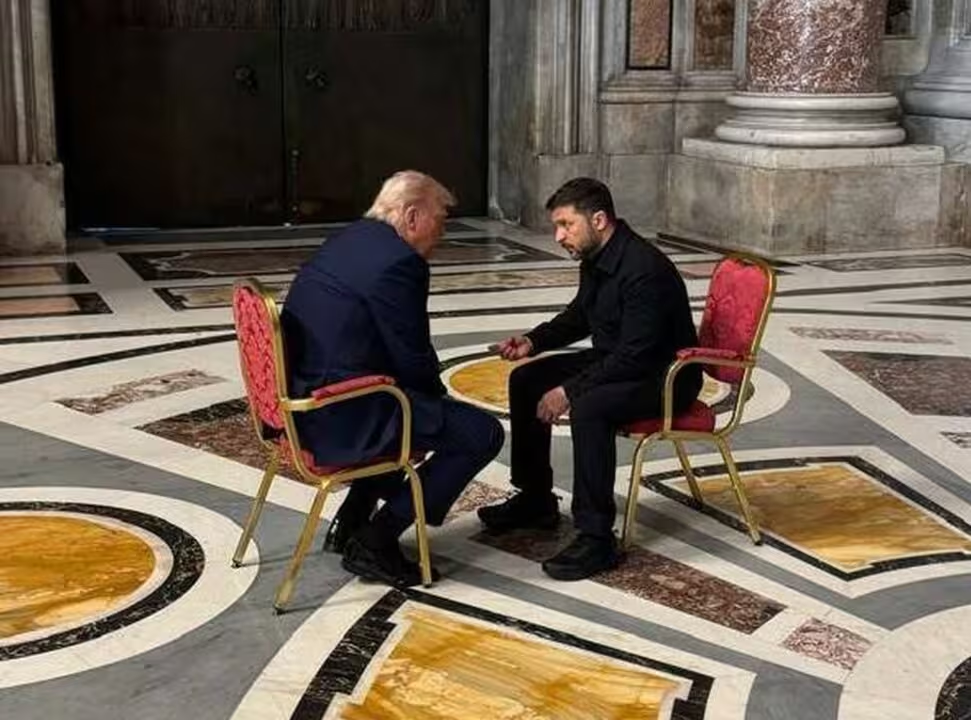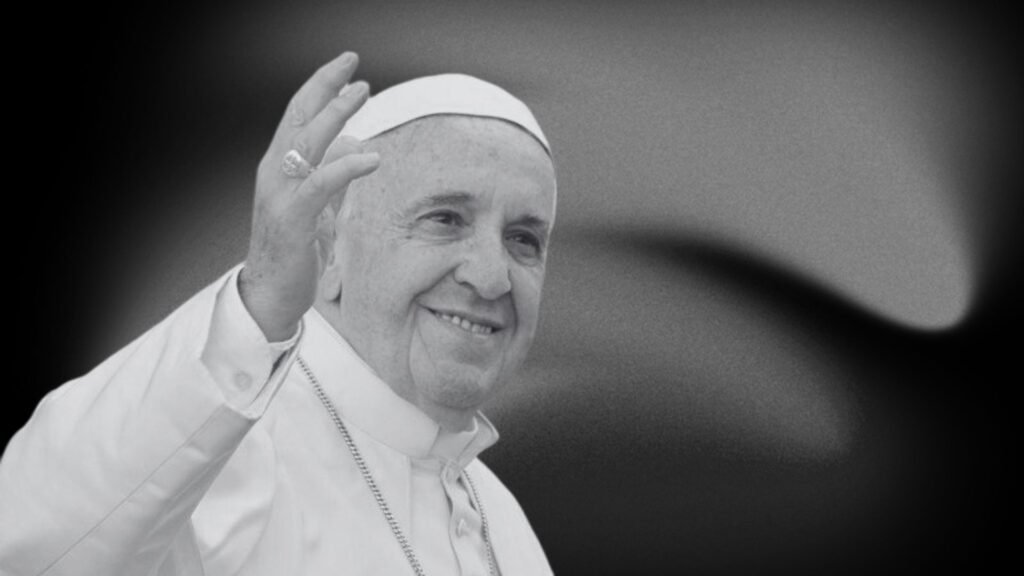A Synod to walk together
In October 2021, Pope Francis convened a Synod for Synodality, with the title, “FOR A SYNODAL CHURCH: COMMUNION, PARTICIPATION, AND MISSION.” The synod was to be organized – locally and regionally – between 2021 and 2023, and conclude at the synodal assembly of October 2024. To understand the historical importance of this event in the existence, […]

In October 2021, Pope Francis convened a Synod for Synodality, with the title, “FOR A SYNODAL CHURCH: COMMUNION, PARTICIPATION, AND MISSION.” The synod was to be organized – locally and regionally – between 2021 and 2023, and conclude at the synodal assembly of October 2024.
To understand the historical importance of this event in the existence, work and future of the Catholic Church, we must, first, understand what it means to conduct a SYNOD in the Church and, secondly, we must reflect on SYNODALITY as an identity that we must assume, a task we must carry out and a path we must travel in ecclesial community, if we want to be today, unfailingly, the community of Christ’s disciples and missionaries of the Good News in the world.
WHAT IS A SYNOD?
Etymologically, the word “synod” comes from the Greek terms “syn” (“together”) and “hodos” (“way”). The term “SYNOD” expresses the idea of “walking together.” Thus the word “Synod” reflects a meaning of multiple dimensions: the community dimension: “together” and the dynamic dimension: “walking.”
To achieve this goal of walking, and of walking together and fraternally, in ecclesial and universal community, the Synod of Bishops became a permanent institution, created by Pope Paul VI on September 15, 1965, with the promulgation of the Motu proprio Apostolica Sollicitudo in response to the wishes of the Bishops participating in the Second Vatican Ecumenical Council, to keep alive the spirit and atmosphere of collegiality born in the conciliar experience.
A SYNOD is an assembly of bishops, representatives of the entire Catholic episcopate, organized and collegiate in episcopal conferences or in regional ecclesial bodies (v.gr. Celam), with the task of sharing pastoral experiences, advising and assisting the Pope, as a consultative body, in the government of the Church; to – “together” – open new “paths” through which to travel, in the ever-changing circumstances, themes and historical problems of all humanity, the existence and work of the Church, in its evangelizing mission, and the construction of the Kingdom of God in the world.
Considering all of this, we must not lose sight of the fact that the main purpose of the Synod of Bishops is its service and commitment to the collegiality and communion of all Catholic bishops with the Holy Father. Moreover, we must remember that, even though the Synod of Bishops is a permanent institution, it meets and acts only when the Pope deems it appropriate. In recent times, the participation of the laity in synodal processes and assemblies has been opening up more and more. In the Synod that we discuss here, Pope Francis wanted the participation of women to be so important and significant that he has officially granted the participants, voice and vote.
WHAT IS SINODALITY?
The word “Synodality” derives from the term “Synod,” already explained above, and, according to his convocation, Pope Francis wants Synodality, that is, “walking together” to be the profile of the Catholic Church in the twenty-first century, as a believing community that pilgrims, united in the task of making possible the sovereignty of God in the world, here and now, through the proclamation and life of the Good News that is the gospel of Jesus Christ.
From the dawn of Christianity, the idea of “walking together” was recorded by the first disciples in the New Testament. (cf. Acts 18:25-26; Mt 7:13-14; Jn 14:6). Moreover, “Way” appears as a term that designates the lifestyle and the name of the very community of the first believers in Christ: Acts 9:2.
Therefore, to summon the Church to live in synodality is to invite us to return to the first sources of our faith, to live together again, fraternally, being and becoming “one” (Jn 17:21) in Christ, in the recognition that we are brothers, children of the same Father.
But, at the same time, a call to a being and synodal task in the Church asks us to rethink our images, concepts and ways of being and carrying out the Church of Jesus Christ.
To set out on a “journey TOGETHER,” to live synodally, means that we can unite, recognize ourselves as equals in the dignity of children of God, equal also in the priesthood of Christ in which we all participate: the laity of the common priesthood of the faithful and the ordained ministers who, moreover, participate by priesthood sacramentally. We then reach equilibrium in the same faith, the same baptism, the same Creed, the same God and the participation of the priesthood of Christ even though we are different in the diversity of gifts, charisms and ministries that the
Spirit raises up in the community of believers for the mission of all in the Church’s evangelizing mission and for the good of all and of all humanity, always having Christ as the center of life in the Church, in the image of the first Christians who lived united, with one heart and one soul and had everything in common (Cf. Acts 2:42s and Acts 4:2s)
To set out “on the way together” means to recognize ourselves as the People of God who are pilgrims on earth, with the same faith, hope, and in the same charity.
This ecclesiology of communion and participation differs from a pyramidal and hierarchical image of the Church in which some administer and others, those below, receive; in which some participate and others are spectators; in which some know and others do not; in which some speak and others listen passively… The ecclesiology demanded by a life in synodality requires overcoming clericalism and building, once and for all, an ecclesial community – People of God, in which all (ordained ministers, religious and laity, men and women, old and young, with different cultures) are seated at the same table, experience ourselves as children of God, brothers all, all participants and co-responsible for the church’s evangelizing mission in the world.
“WALKING together” means and implies a community capable of opening paths and of setting out, of knowing that it has been sent (Mt 10:16-18) and is missionary. “Walking” presupposes a believing community, not passive but active, on the move, standing, attentive, awake, vigilant, building, evangelizing with deeds and words, “preaching the Gospel and healing every sickness and every disease” (cf. Mt 9:35), to fulfill Jesus” command, “Go ye into all the world, and preach the gospel” to every creature (Mk 16:9-15).
When Francis summons us to the Synod for Synodality, to a Synod where we “walk together,” he dreams of this Church, this People of God and not a pyramid, a People of brothers in the same creed, People who march and pilgrimage towards the house of the Father, People who are “light and salt of the earth” through the new commandment of love, People of God in whom all feel called, belonging and equally important, People of God in which all fit and all are welcomed with the compassion and mercy of the Father, a People of God in COMMUNION, PARTICIPATION AND MISSION.
During the years of his Petrine ministry, Francis has been reiterative on important issues to be considered in the Church’s relationship with the world and which are surely already marking the course of these years of preparation for the Synod, such as: the evangelization of the social peripheries and of those who live within them, “discarded” and “distanced” by a Samaritan Church that must show itself as an “outgoing” Church. It is a Church that needs to overcome asymmetries and polarizations and talk about the issues that interest all humanity, openly, frankly and free of forbidden topics.
The Synod to live SYNODALITY in the Church asks us for COMMUNION and PARTICIPATION to make effective and relevant the MISSION of those who are the CHURCH of Christ in the world. For this, we must look at ourselves “ad intra,” within the Church itself and look “ad extra” as a pilgrim Church in the world, amidst and for the entire human family, for which, we must urgently unite in synodality, to have a sense of belonging to and in the Church, openness, respectful attention, listening, consulting, cooperating, advising, discerning from the Gospel, celebrating and undertaking a sincere dialogue with other religious denominations, with those far from the faith, with the very diverse environments and institutions of society: politics, economy, culture, work, education, minority groups in society, etc. Because, with the light and values of the Gospel, we must illuminate everything and everyone.
May these reflections enlighten, encourage and guide us in the discernment, participation and mission that we must all fulfill, to “walk together,” in synodality, as the People of God who want to be the sacrament of Christ in the world, a space of light and God’s compassion and mercy for all, as – at the time – Jesus of Nazareth was the sacrament of the Father (Jn 14:8-12).
Mario J. Paredes is a member of the Board of Directors of the Latin American Academy of Catholic Leaders.
Related

Miserando atque eligendo: The Legacy of Mercy in the Church
Luis Herrera Campo
28 April, 2025
3 min

A Meeting of Hope in St. Peter’s Basilica: Trump and Zelensky
Exaudi Staff
27 April, 2025
2 min

Saying Goodbye to Francis
Exaudi Staff
26 April, 2025
2 min

The Family: A School of Love, Forgiveness, and Hope
Laetare
25 April, 2025
3 min
 (EN)
(EN)
 (ES)
(ES)
 (IT)
(IT)

